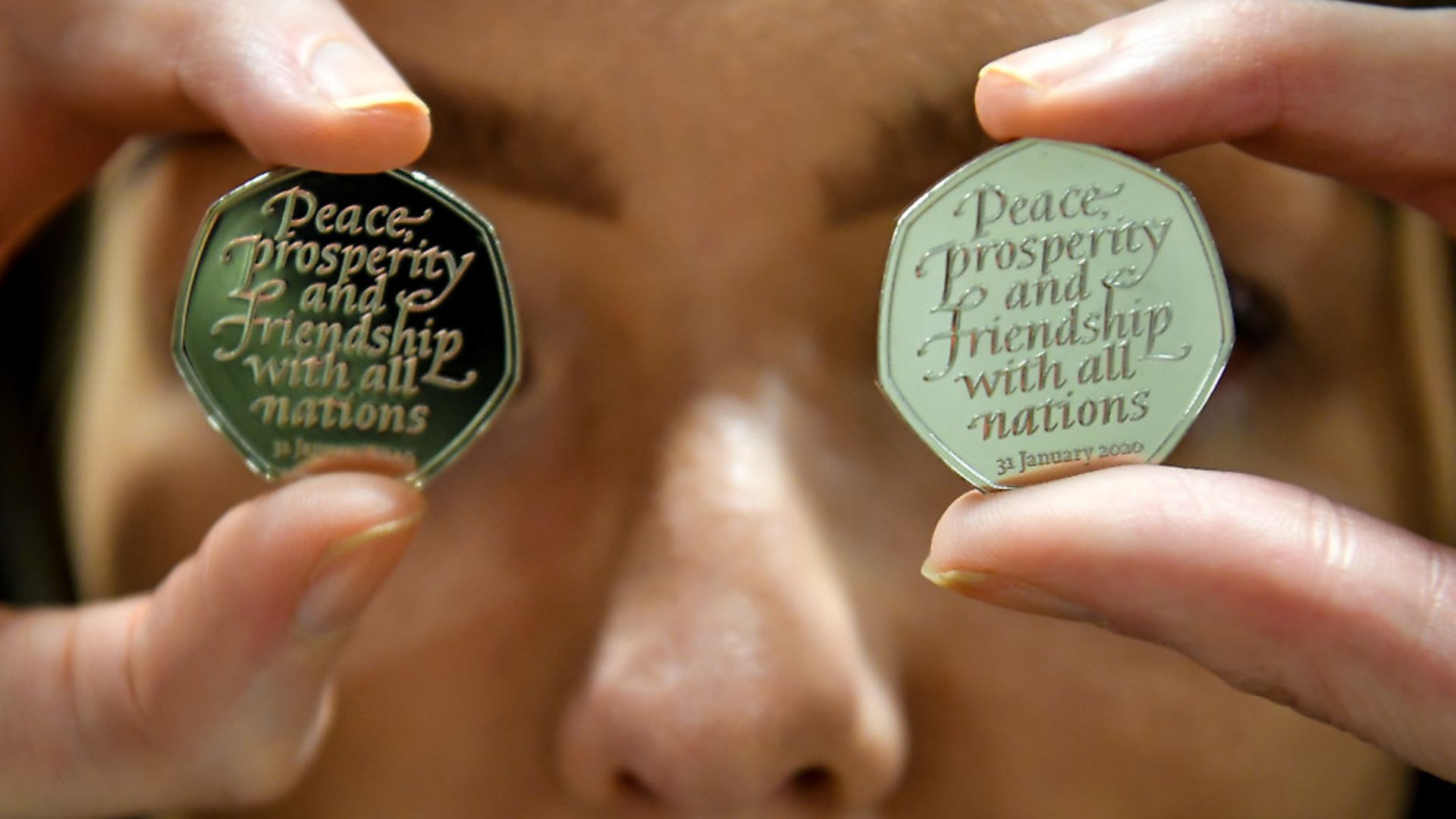
Around three million Brexit 50p coins have entered into circulation as they arrived at banks, post offices and shops.
Another seven million of the coins will mark the UK’s departure from the EU later this year.
They are dated January 31 – and the chancellor has said the coins mark the beginning of a “new chapter”.
The coins have already sparked controversy before entering circulation – and not just for political reasons.
Their inscription reads: “Peace, prosperity and friendship with all nations.”
Author Sir Philip Pullman has called for the coins to be boycotted for not having an Oxford comma.
An Oxford comma is used after the penultimate item in a list of three or more items, so would be placed after the word “prosperity”.
MORE: The best alternative designs for the commemorative Brexit 50p coin
His Dark Materials author Sir Philip wrote on Twitter that the omission meant the coin should “be boycotted by all literate people”.
Remainers have threatened to take the coin out of circulation, pointing out that there were 16 million Remainers, outnumbering the coins which will exist in the UK.
The Royal Mint has separately produced versions for sale which range from £10 for a brilliant uncirculated 50p to £945 for a limited edition gold coin.
The Mint said it is the fourth time it has been involved in the production of a commemorative coin to mark the UK’s relationship with the European Union.
It produced a coin when the UK joined the European Economic Community in 1973, created a design for the single market in 1992, and marked the UK’s 25th anniversary of joining the EU in 1998.








